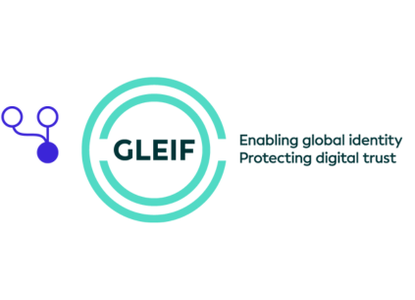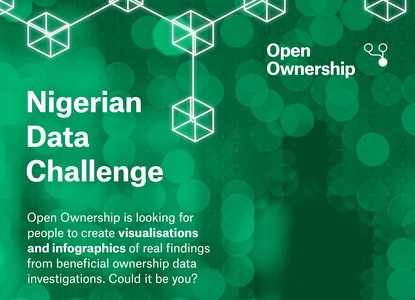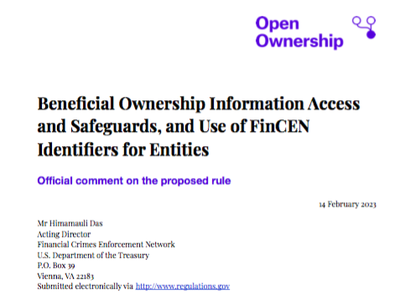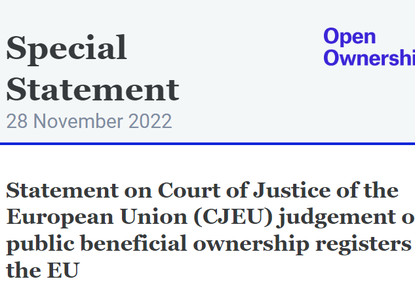Updated January 2023
Sufficient information should be accessible to all data users without undue restrictions
- Sufficient information should be accessible to each data user group that can contribute to meeting intended policy aims.
- All government users and additional user groups whose access is justified to meet specific policy aims should have direct and rapid access to the data they require, on a per-record basis (searchable by both the name of the corporate vehicle and the beneficial owner) and as bulk data.
- The public should have access to a clearly defined subset of information that is sufficient for them to understand and meaningfully use the data, free of charge.
- Data should be available without barriers to access, search, use, and share the data, such as identification or registration requirements, and restrictive search functionality or licensing.
- The publication of information should be proportional to the infringements on privacy, by clearly establishing a broad purpose and legal basis, in line with privacy and data protection legislation, and by understanding and mitigating potential negative effects of the publication of data.
- Disclosure regimes should permit withholding the publication of certain data on a case-by-case basis as part of a protection regime to mitigate disproportionate risks to personal safety. The grounds for withholding the publication of any data should be clearly defined, proportionate, fairly applied, and published.
- Where information is exempt from disclosure to the register, or withheld from publication, the exemption should be clearly defined, justified, and narrowly interpreted, and the publicly available information should note the reason information has been exempted from disclosure or withheld from publication.
All user groups that can use beneficial ownership information to achieve stated policy aims, both inside and outside governments, should have access to sufficient information in order to meaningfully use the data. This access should be given without undue restrictions and in line with privacy and data protection legislation. What constitutes sufficient information can vary according to the user group. For example, law enforcement may need access to the full dataset to assist an investigation, whereas a company undertaking due diligence would only need specific information relevant to their work.
The publication of beneficial ownership information serves multiple legitimate public interest purposes, including providing oversight to taxpayers, ensuring corporate accountability, and increasing confidence in markets. Providing public access to a subset of beneficial ownership information can increase impact by expanding the user base beyond authorities. It enables businesses, journalists, foreign law enforcement, and citizens from around the world to freely access information on the beneficial ownership of corporate vehicles for investigations, due diligence, risk management, and oversight. Widespread use of data can also drive up its quality, as users can highlight discrepancies and suspected errors in the data, which can complement verification efforts. Public access to the beneficial ownership information of companies involved in the extractive industries contributes to meeting the requirements of the Extractives Industries Transparency Initiative (EITI) Standard.
Making information available should be both proportional to the infringements on privacy as well as compliant with data protection and privacy legislation. In practice, this means that the broad purpose for publication and a clear legal basis should be specified in law. Different user groups can be given access to subsets of the minimum information they need to effectively use the data in a system of layered (or tiered) access, and potential negative effects of publication should be understood and mitigated to the extent possible, for example, through a protection regime.
In instances where data is withheld from publication, due to exemptions under a protection regime, this should not automatically constitute an exemption from disclosure to the registry. Their beneficial ownership interests will still need to be disclosed, and this information should still be available to authorities. In all cases where information is missing, the public record should state why to be able to easily interpret the data.
Resources:
- Making central beneficial ownership registers public
- Early impacts of public beneficial ownership registers:
- Data protection and privacy in beneficial ownership disclosure
- Guide to implementing beneficial ownership transparency: Legal aspects of creating a register
- Guide to implementing beneficial ownership transparency: Publishing beneficial ownership information
- Striking a balance: Towards a more nuanced conversation about access to beneficial ownership information









